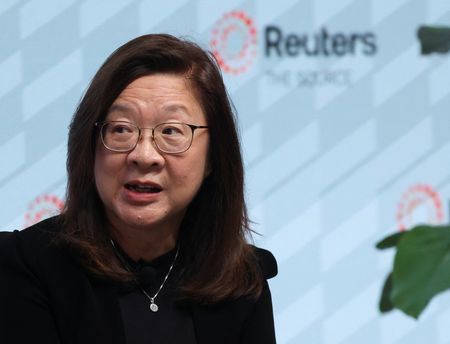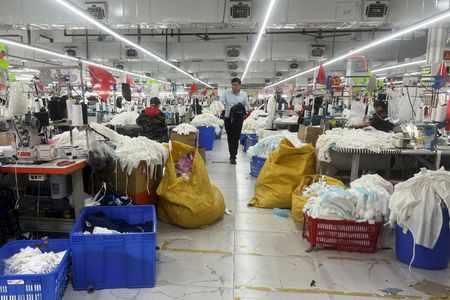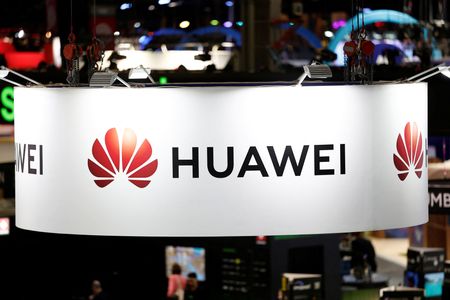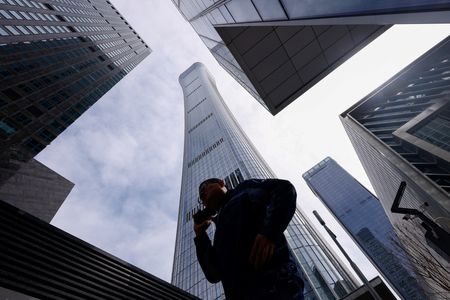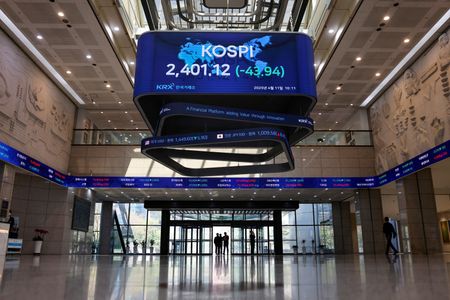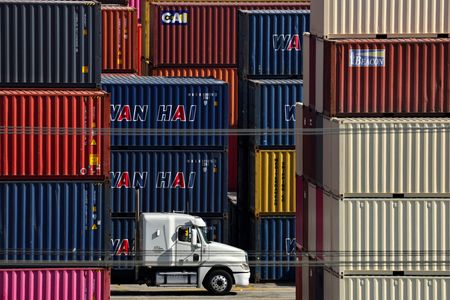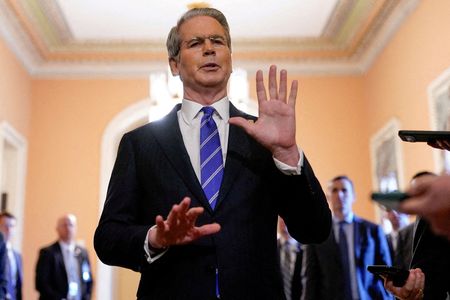By Yantoultra Ngui, Jun Yuan Yong and Himanshi Akhand
SINGAPORE (Reuters) -Global financial markets are becoming “desensitised” to U.S. President Donald Trump’s tariff decisions, according to CGS International Securities Group Chief Executive Carol Fong.
Speaking on a panel at the Reuters Next Asia summit in Singapore, she said investors were no longer reacting as sharply to tariff changes and announcements.
“If you look at the tariff situation overall, I think the markets are starting to get a bit desensitised to all the output that might come, so to speak,” Fong said.
“Look what happened in the last two days when the tariff (deadline) lapsed, the market didn’t react badly and I think the market itself has been a bit desensitised”.
Trump has set a new August 1 deadline for “reciprocal” tariff rates, which will affect nearly all trading partners, unless negotiations in the coming weeks lead to reductions.
Trump also said he would impose a 50% tariff on copper imports, a metal used in everything from housing to consumer electronics, vehicles, the power grid and military hardware.
Treasury Secretary Scott Bessent said on Tuesday the U.S. has taken in about $100 billion in tariff income so far this year, and this could grow to $300 billion by the end of 2025.
Meanwhile, Fong said there was a growing trend of Chinese companies relocating resources to Southeast Asia, driven by trade uncertainties.
“In fact, we see a lot more interest for the last six to nine months for Chinese companies coming out, building potential partners to diversify their base, to improve their distribution channels,” she said.
The trade war, initiated by Trump’s “Liberation Day” on April 2, had led to volatility in global markets and prompted some investors to shift away from U.S. assets.
Despite these challenges, Uday Sareen, ING chief executive and head of wholesale banking for Asia Pacific, said during the panel discussion that Asia continued to see more inflows of foreign direct investment compared with the rest of the world.
Eastspring Investments Chief Investment Officer Vis Nayar highlighted India as a standout destination for investment.
“If I had to pick one (market), I would stick to India in particular because of the domestic economy and the characteristics,” Nayar, speaking on the panel, said.
However, he cautioned that valuations in India are expensive, requiring investors to be selective about their choices.
To view the live broadcast of the World Stage go to the Reuters LIVE page: https://www.reuters.com/world/reuters-next-asia-live-global-leaders-address-challenges-opportunities-2025-07-07/
(Reporting by Yantoultra Ngui, Jun Yuan Yong and Himanshi Akhand; Writing by Scott Murdoch; Editing by Jacqueline Wong)

